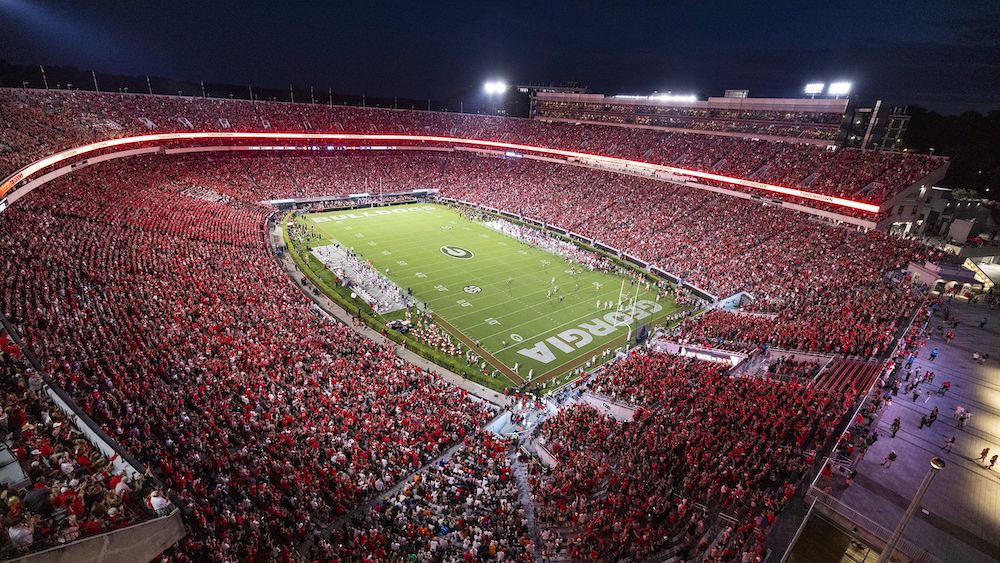By April Reese
University of
Georgia
Georgia's football season is in full swing, and football teams draw fans and foods to the stadium on game day. But without proper concern for safety, the food can leave fans sick in the stands.
Elizabeth Andress, an extension food safety specialist with the University of Georgia College of Family and Consumer Sciences, warns people of the health risks of tailgating.
"Tailgate parties are a perfect opportunity for there to be temperature abuse of foods," Andress said. "People should pay close attention to make sure cold foods are staying cold enough and hot foods are heated to the right temperatures so people don't perish with food-borne illness."
Cold foods should be cold
The cold foods shouldn't be just cool. "People need to make sure they're packing really good-quality coolers with plenty of ice or frozen gel packs," Andress said. "All the food in your cooler needs to stay at 40 degrees Fahrenheit or below."
It's possible to keep food in the cold safety zone, she said, if you pack properly. "Thoroughly chill cold items before you put them into the cooler," she said.
Gel packs are good for coolers, she said, because they warm up very slowly once out of the freezer.
"Check the temperature of foods in the cooler often to make sure they're cold enough," she said. "Discard perishable foods that have been in the temperature danger zone, from 40 to 140 degrees Fahrenheit, for more than two hours," Andress said.
Keep raw and read-to-eat separate
In safely packing coolers, keep raw foods separate from ready-to-eat foods they can contaminate. Do this from the store to the tailgate.
"This means keeping foods separate in the grocery cart, refrigerator and cooler," Andress said. "Pack raw foods below cooked foods in the cooler with some kind of separation between them."
She suggests using one cooler for drinks and snacks and another for raw foods and using separate cutting boards, utensils and plates for raw and cooked foods.
People often get sick, too, from not cooking hamburgers, chicken, or even hotdogs well enough, she said.
Chicken is a popular food for tailgating, and raw chicken has Salmonella bacteria on it that can easily be transferred onto other foods.
"Problems can arise when the bacteria transfers to foods like rolls or vegetables, because those foods may not even get cooked," Andress said.
Don't use color as an indicator
A common misconception is that you can rely on colors to tell how done a piece of meat is.
"People ... tend to go by whether juices run clear or the inside is no longer pink," Andress said. "These aren't good indicators that important bacteria like E. coli 0157 are no longer present."
She recommends a better way to check foods on the grill. "One of the best investments you can make to prevent food-borne illness is to invest in a thermometer," Andress said. "Hamburgers should be heated to at least 160 degrees F before eating them and chicken to 180 degrees F."
An important step in avoiding food-borne illnesses is to be safely clean.
Wash hands frequently
"It's hard to be clean at a tailgate party or picnic, but it's important to wash hands before and after handling foods," Andress said. "Be sure to take something with you to be prepared for cleaning up utensils or anywhere you are actually setting food items."
Andress said some of the most common food-borne illnesses are related to people passing diseases to each other due to unclean hands.
"Staph poisoning is very common," Andress said. "We all have Staphylococcus bacteria on us, and without properly cleaning hands and utensils, we can pass them from person to food. Once deposited on food, Staph bacteria can multiply and produce toxins if the food is in the temperature danger zone for too long."






